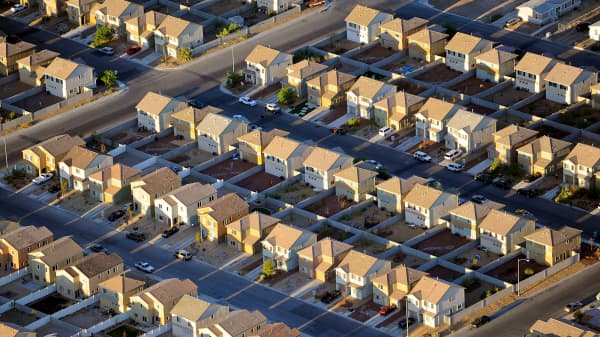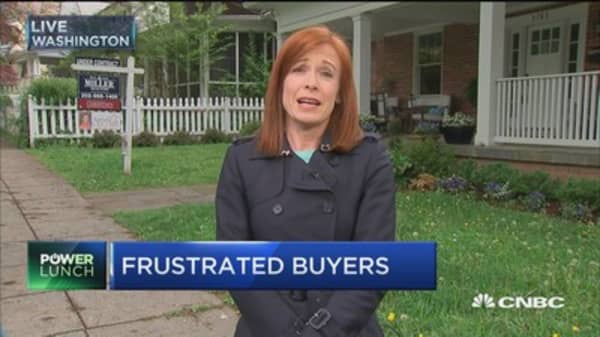Check out any one of the many national home price reports, and headlines scream of new peaks and growing gains each month. Home prices are rising faster than inflation, faster than incomes and faster than some potential buyers can bear. Those reports are heavily weighted toward large metropolitan housing markets.
In fact, most of the U.S. housing market has not recovered from the epic crash of the last decade.
Only about one-third of homes have surpassed their pre-recession peak value, according to a new report from Trulia, a real estate listing and analytics company. Price growth in most markets is so slow that it will take about eight years for the national housing market to fully recover — that is, for all home values either reaching or surpassing their previous peaks.
Huge price gains during the last housing boom were juiced almost entirely by an incredibly loose mortgage lending market that no longer exists.






